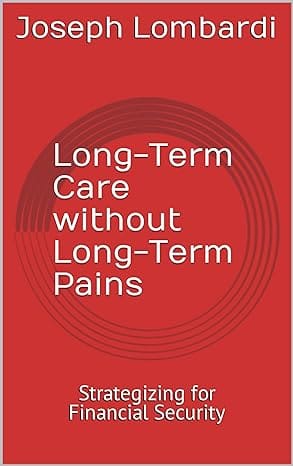Understanding Whole Life Insurance in Connecticut
Whole Life Insurance is a permanent life insurance policy that enables policyholders to obtain coverage for their lives. These policies come with investment components known as cash value, which accrues over time and can be used as a source of funds. In Connecticut, people can leverage the power of cash value in whole life insurance policies to achieve long-term financial stability.
By investing in a whole life insurance policy, individuals gain death benefit protection and the ability to accumulate cash value that grows tax-free. This accumulated amount can be used for various purposes such as retirement income, college expenses or emergency funds.
Unlike term life insurance, which has an expiration date, whole life insurance offers permanent coverage; beneficiaries will receive a payout no matter when the insured person passes away. The premiums may initially be higher than those for term life insurance policies but are stable throughout the policy’s tenure.
It is worth noting that interest rates determine cash value growth for whole life insurance policies. Policyholders must understand how interest rates affect their premiums and benefits before fully signing up for such a plan. Assistance from an experienced financial advisor can help individuals make more informed decisions about whole life insurance policies and their use of cash values.
According to a study by LIMRA Secure Retirement Institute, 25% of American households have at least one individual who owns some form of permanent life insurance. Moreover, many individuals invest in this type of policy to supplement retirement savings or reduce taxes during their working years.
The Power of Cash Value in Whole Life Insurance
Whole life insurance policies come with a hidden gem, known as the cash value. This feature allows policyholders to accumulate tax-deferred savings over time, which can be accessed at any point in the future or even used for loans or as collateral.
The cash value in whole life insurance provides a powerful tool for financial planning and security. Unlike term life insurance, which only offers death benefit protection for a set period of time, whole life insurance continues indefinitely, building up a cash reserve that can increase over time.
In addition to its long-term growth potential, cash value offers flexibility and liquidity that many other investment vehicles lack. Policyholders can withdraw funds from their cash value accounts or take out loans against them without penalties or taxes, allowing them to access their money when they need it most.
By unlocking the power of cash value in whole life insurance policies, individuals can create a solid foundation for their financial future and protect themselves and their loved ones from unforeseen circumstances.
Don’t miss out on this valuable opportunity to secure your financial future. Contact an advisor today to learn more about how you can leverage the benefits of cash value in your own whole life insurance policy.
How to Maximize Cash Value in Whole Life Insurance
To unlock the potential of cash value in whole life insurance, one must understand the strategies to maximize its value.
- Opt for a paid-up additions rider to supplement your policy’s earned dividends.
- Pay more than the minimum premium to accelerate the growth of the cash value.
- Consider borrowing against the cash value, but make timely repayments.
- Avoid surrendering your policy, as it may result in losses that could have been avoided.
- Work with a professional to customize your policy to fit your specific needs and goals.
Consistently reviewing and adjusting your policy to reflect your current financial situation and insurance needs is crucial to maximizing the potential of your whole life insurance policy.
Lisa, a dentist from Connecticut, had a whole life insurance policy with a cash value of $100,000. She unexpectedly needed funds for a new dental equipment purchase. Instead of going to a traditional lender, Lisa chose to borrow against the cash value of her policy, making timely repayments. This strategy allowed her to expand her business while also increasing the cash value of her policy in the long run.
Dividends? More like pocket change from the insurance gods.
Understanding Dividend Payments
Whole life insurance policies can allow the policyholder to earn dividends on their investment. These dividends are paid out by the insurance company to policyholders, based on the performance of their investment portfolio. Understanding dividend payments is essential for maximizing cash value in whole life insurance.
Below is a table that outlines how dividend payments work:
| Column 1 | Column 2 |
|---|---|
| Dividend Payment Schedule | Annual or Semi-Annual Payments |
| Calculation Method | Based on the performance of investment portfolio |
| Potential Uses | Cash payout, reduce premiums, purchase additional insurance |
It’s important to note that while dividends can increase cash value in the policy, they are not guaranteed and may fluctuate year-to-year.
One unique detail about dividend payments is that they can be used to advantage in estate planning. Rather than taking a cash payout for dividends, using them may make more sense to purchase additional insurance coverage.
In history, dividend-paying whole life insurance policies have been around for over a century. These policies were initially created to provide stability and growth of assets for families during difficult times. Today, these types of policies continue to offer benefits for those looking to build long-term financial plans.
Utilizing Paid-Up Additions
Incorporating additional paid-up policies is a useful strategy to optimize the cash value in whole life insurance. Utilizing this action plan can significantly increase the overall value of the policy.
- By purchasing paid-up additions, policyholders have access to tax-deferred investments that will augment their savings.
- Paid-up additions deliver liquidity and flexibility to a traditional whole life insurance policy by enabling policyholders to invest rather than solely deduct premiums from the account.
- In comparison to other types of permanent life insurance, paid-up additions in whole life policies provide greater control over investment than universal life policies, ensuring an increase in cash value.
- Leveraging dividends from added paid-up purchases can compound interest payments for future gains while also providing extended coverage for beneficiaries.
Including paid-up additions must be considered when optimizing cash value on any whole life insurance policies. With sound advice and careful planning, incorporating these changes can maximize your long-term financial gain.
Studies demonstrate that by including additional paid-up coverage into a policyholder’s plan they can attain approximately 30% more returns in retirement savings (Forbes).
Borrowing Against Cash Value
Whole Life Insurance: Leveraging Cash Value
Borrowing against the accumulated cash value of a whole life insurance policy is a way that policyholders can leverage their investment to access the necessary funds. Here are some important factors to consider when borrowing against cash value:
- Loan Interest: Policyholders must pay back the loan amount with interest. The interest rate is typically lower than traditional banks’ on personal loans.
- Repaying the Loan: If the loan isn’t repaid fully, it may reduce the death benefit paid out by the policy after death. Consider paying monthly interest payments to avoid reducing the principal amount.
- Taxation: Loans taken from the cash value are not taxable as income, but if a policy lapses due to insufficient funds and has an outstanding loan balance, then borrowed money is considered as income and becomes taxable.
- Policy Life Expectancy: Borrowed money plus any unpaid interests might increase faster than your cash value; therefore, always carefully monitor your account’s loan-to-value ratio.
Leveraging one’s whole life insurance investment for borrowing is a wise choice since it offers lower interest rates than conventional bank loans. However, it should be handled cautiously because if unpaid or unpaid interests accumulate, it may reduce your policy’s payout in case of death. Additionally, borrowed money only makes sense if you plan to utilize it.
Henceforth, if you are considering borrowing against cash value from your whole life insurance policy – create an accountability system! After all, this strategy is long-term and must be monitored meticulously so that excessive withdrawals don’t compromise your family’s future financial security.
Tax Benefits of Cash Value in Whole Life Insurance
When maximizing the potential of your whole life insurance, understanding its tax benefits is crucial. Here are the various ways to take advantage of cash value in whole life insurance:
| Tax Benefit Type | Details |
|---|---|
| Tax-Free Loans | You can take tax-free loans from the cash value of your policy without paying taxes on your income. |
| Dividend Earnings | Whole life insurance policies offer dividends that are not taxed, unlike other investment options like stocks or mutual funds. |
| Death Benefit Payouts | When the insured person passes away, their beneficiaries receive death benefit payouts which are tax-free. This is a significant advantage over other types of investment accounts where beneficiaries may be responsible for paying taxes on inherited assets. |
Moreover, whole life insurance offers a fixed premium and guaranteed cash value growth which is an attractive feature compared to other investment options with fluctuating returns.
Did you know that whole life insurance has existed since the mid-19th century? At first, it was mainly used to cover final expenses such as funerals and burials. Nowadays, people use it for personal protection and as part of their overall financial plan due to its tax benefits and fixed premiums.
Estate Planning with Cash Value in Whole Life Insurance
Cash value in whole life insurance can be a powerful tool for estate planning in Connecticut. This type of insurance policy provides coverage for the insured’s lifetime. It accumulates cash value that can be used for various purposes, such as funding retirement, paying off debt, or leaving a legacy to heirs.
| Estate Planning with Cash Value in Whole Life Insurance | ||||
|---|---|---|---|---|
| Benefits | – Guaranteed death benefit | – Tax-free growth of cash value | – Access to cash value through loans and withdrawals | – Protection from volatility in the stock market |
Connecticut state laws exempt the cash value of whole life insurance policies from creditors and legal judgments. Additionally, policyholders can use their cash value as collateral for loans or surrender it for a lump sum payment.
If you want to secure your financial future and protect your loved ones, consider exploring the benefits of whole life insurance with our expert advisors. Don’t miss out on this type of policy’s potential growth and protection.
History has shown us that life insurance policies have exceeded their original purpose. Innovative thinking has led to policyholders discovering additional financial benefits within these contracts. By unlocking the power of cash value in whole life insurance, policyholders can set themselves up for a stronger financial future.
Choosing the Right Whole Life Insurance Policy for Your Needs
Choosing the ideal Whole Life Insurance Policy suiting your specific requirements is essential.
| Characteristics | Details |
| Premium Payments | Higher than Term Life, but the same throughout |
| Cash Value | Builds over time and can be used as a loan or withdrawal |
| Death Benefit | Guaranteed for life in most cases |
| Coverage Limitations | Not ideal for short-term coverage and max coverage may be lower than Term Life |
Whole life insurance has various benefits that differ from term life insurance policies. Experts say investing in one during early stages of life is more beneficial.
The key to choosing an ideal Whole Life Insurance Policy is considering age, budget, family needs, and debt commitments. Analyzing these will help you select the right policy options. Additionally, choosing guaranteed acceptance whole life insurance policies provides peace of mind with no medical exam required.
Moreover, taking advantage of the cash values between 5-10 years after initial purchase will unlock the policy’s full potential. This option enables policyholders to access funds for savings or investing while still benefiting from their insurance coverage. Thus, selecting the appropriate Whole Life Insurance Policy based on precise requirements is crucial in maximizing its full potential.
Unlocking the Full Potential of Cash Value in Whole Life Insurance.
To truly harness the power of whole life insurance in Connecticut, it is essential to unlock the full potential of cash value. This requires a deep understanding of the unique benefits and features associated with this type of insurance and a commitment to ongoing education and professional guidance. By prioritizing cash value accumulation and leveraging innovative strategies, policyholders can enjoy greater financial security, flexibility, and peace of mind both now and in the future.
One key strategy for maximizing the value of cash accumulation is utilizing dividend options wisely. By carefully considering how to reinvest dividends into their policy, Connecticut residents can accelerate growth while increasing their overall death benefit. Additionally, exploring investment opportunities beyond traditional fixed-rate accounts can help policyholders take advantage of a wider range of potential returns.
Furthermore, proactive monitoring and management are critical to long-term success with whole life insurance. This involves regularly assessing individual needs and goals, making adjustments as necessary, and staying informed about emerging trends and developments within the industry.
Ultimately, those who can unlock the full potential of their whole life insurance policy stand to gain significant advantages over time. From enhanced wealth-building opportunities to comprehensive coverage for loved ones, this type of coverage offers truly unparalleled benefits that cannot be matched by any other investment or financial vehicle.
Act now to explore your options for unlocking the power of cash value in whole-life insurance – your future self will thank you for it!
Frequently Asked Questions
Q: What is cash value in whole life insurance?
A: Cash value is a savings component of a whole life insurance policy that grows over time and can be accessed by the policyholder.
Q: How can I unlock the power of cash value in my whole life insurance policy in Connecticut?
A: The power of cash value in your whole life insurance policy can be unlocked through borrowing against it, using it to pay premiums, or even surrendering the policy.
Q: What are the benefits of using cash value in my whole life insurance policy?
A: The benefits of using cash value in your whole life insurance policy include tax-free growth, potential for higher returns than traditional savings accounts, and the ability to access funds without penalty.
Q: Are there any risks associated with using cash value in my whole life insurance policy?
A: Yes, there are risks associated with using cash value in your policy, such as potential tax consequences, decreased death benefit, and the risk of policy lapse if the loan is not repaid.
Q: Can I use the cash value in my whole life insurance policy to pay for long-term care?
A: Yes, some whole life insurance policies offer riders that allow policyholders to use the cash value to pay for long-term care expenses.
Q: How do I know if unlocking the cash value in my whole life insurance policy is right for me?
A: It is important to consult with a financial advisor to determine if accessing the cash value in your policy is the best option for your specific financial goals and situation.




